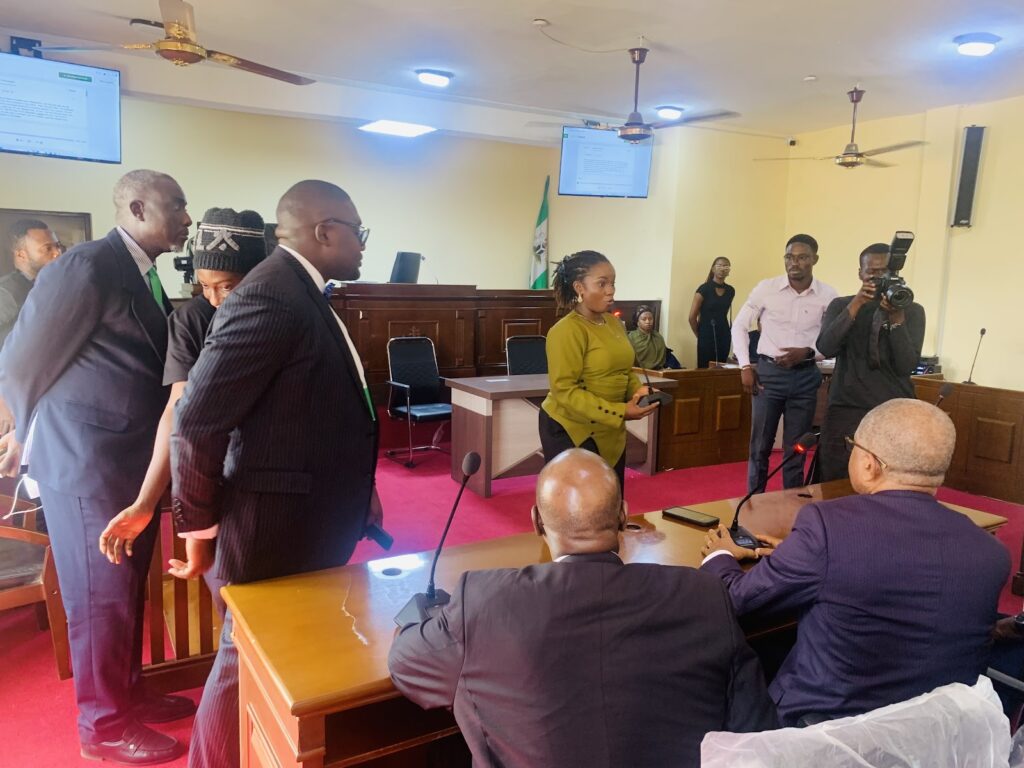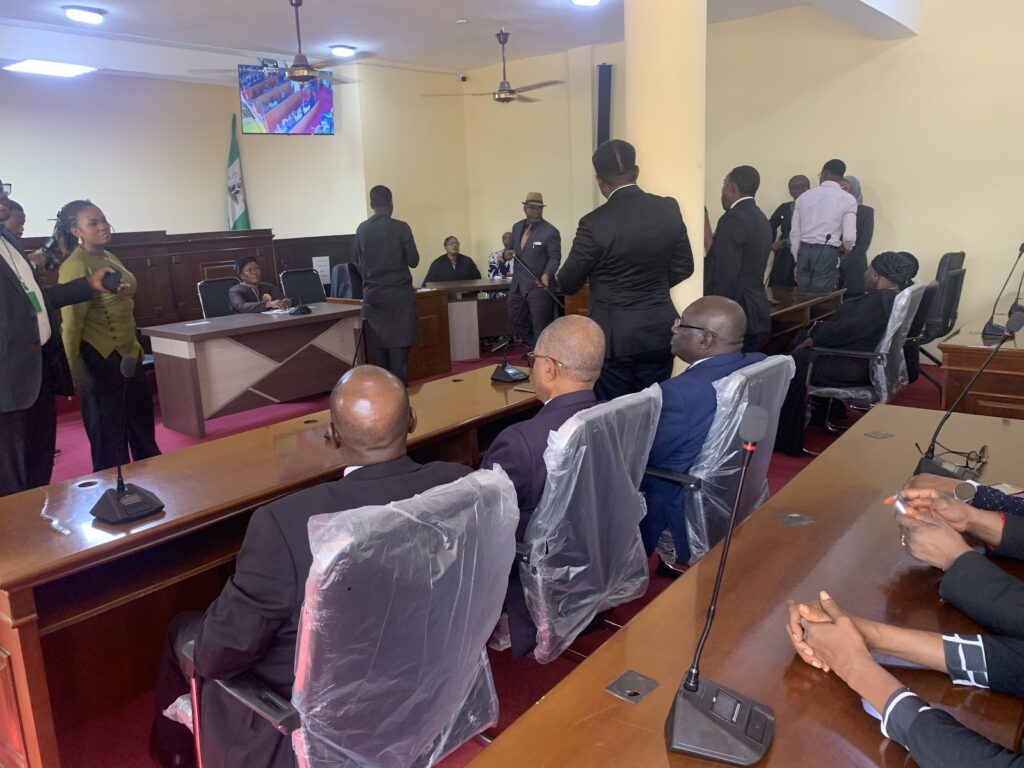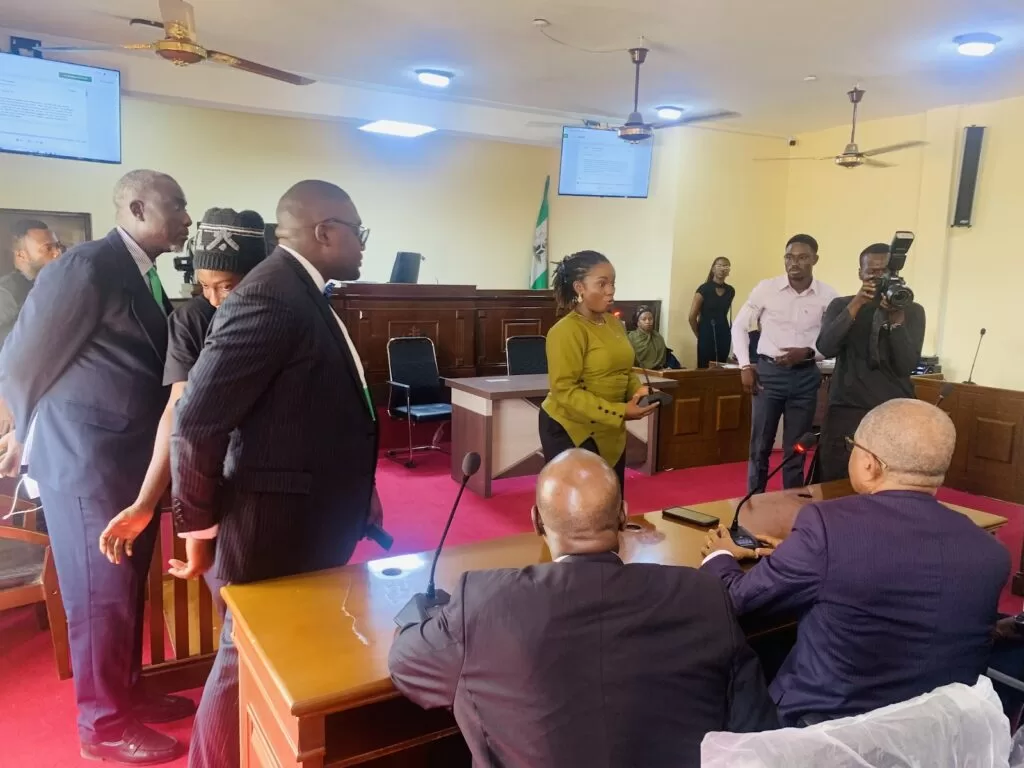The Public and Private Development Centre (PPDC) re-introduced its Court Administration and Case Management (CACM) technology on Tuesday, Nov. 19, during a ‘Access to Justice’ Parley in Abuja, North-central Nigeria. The initiative, already deployed in six states, including Adamawa, Kaduna, Plateau, and Nasarawa, aims to revolutionise Nigeria’s judicial system by addressing procedural delays and enhancing efficiency.
Supported by the U.S. Department of State’s Bureau of International Narcotics and Law Enforcement Affairs (INL) and developed by Devon Tech, a PPDC subsidiary, the CACM project integrates advanced features such as real-time speech-to-text transcription, digital case scheduling, and secure cloud storage.
The event’s highlight was a live demonstration at the Apo High Court, where a mock court session showcased the software’s capabilities. Within minutes, court proceedings were transcribed and made available to judges and staff, underscoring the potential for rapid case processing.
“This technology addresses inefficiencies in our judiciary, but state-level collaboration and counterpart funding is essential for its success,” PPDC’s CEO, Lucy James Abagi, said. She emphasised the importance of sustained partnerships while presenting the project during the demonstration.

The CACM project has already been deployed in six states, including Adamawa, Kaduna, Plateau, and Nasarawa, and it plans to expand its reach. Judges and court staff in these states are undergoing training, and the initiative aims to digitise at least 50 per cent of Nigerian courts within five years. Future phases include introducing virtual court sessions to facilitate remote participation and reduce logistical burdens.
Chibuzor Ekwekwuo, PPDC’s Board Chair, highlighted the broader impact of digitising court processes, saying, “Achieving this level of digitisation could solve at least half of the problems of the court and the justice system and then enable us to address the other human elements.”
“What we are doing as PPDC is to address these technical and infrastructure problems. Like they said, justice delayed is justice denied,” Chibuzor said.

Plateau State’s Chief Judge Justice David Mann hailed the innovation as a “positive development for the judiciary.” Several other stakeholders at the event lauded the initiative as a crucial step toward creating a more transparent and efficient judiciary in Nigeria.
To ensure seamless deployment, PPDC provides Starlink internet services for participating courts. “We can only withdraw when we are sure that it’s working effectively, and our withdrawal does not mean we will not be available to provide technical support.” Ikechukwu Aguwu, a member of the PPDC technical team, said.
Despite its promise, the CACM project faces challenges, including occasional transcription errors with Nigerian names and phrases. PPDC says it is improving the software’s functionality and plans to integrate support for local languages.
PPDC also presented a justice assessment report covering 12 states and the Federal Capital Territory (FCT) at the parley. The report provided an in-depth analysis of systemic gaps in legal frameworks and operational performance, with calls for reforms to improve access to justice.
The Public and Private Development Centre (PPDC) relaunched its Court Administration and Case Management (CACM) technology in Abuja, Nigeria, to enhance the efficiency of the judicial system.
Supported by the U.S. Department of State and developed by Devon Tech, the CACM project offers features like real-time transcription and digital case scheduling, already implemented in six Nigerian states.
A live demonstration at the Apo High Court showcased the software’s capacity to rapidly transcribe court proceedings, highlighting the potential for expediting case processing.
The initiative aims to digitize 50% of Nigerian courts in five years, including training judges and court staff in participating states, with future plans for virtual court sessions.
Despite some challenges, such as transcription errors with local names, PPDC is improving the software and providing the necessary technical support. Additionally, PPDC’s justice assessment report identifies systemic gaps in legal frameworks, calling for reforms to enhance access to justice.
